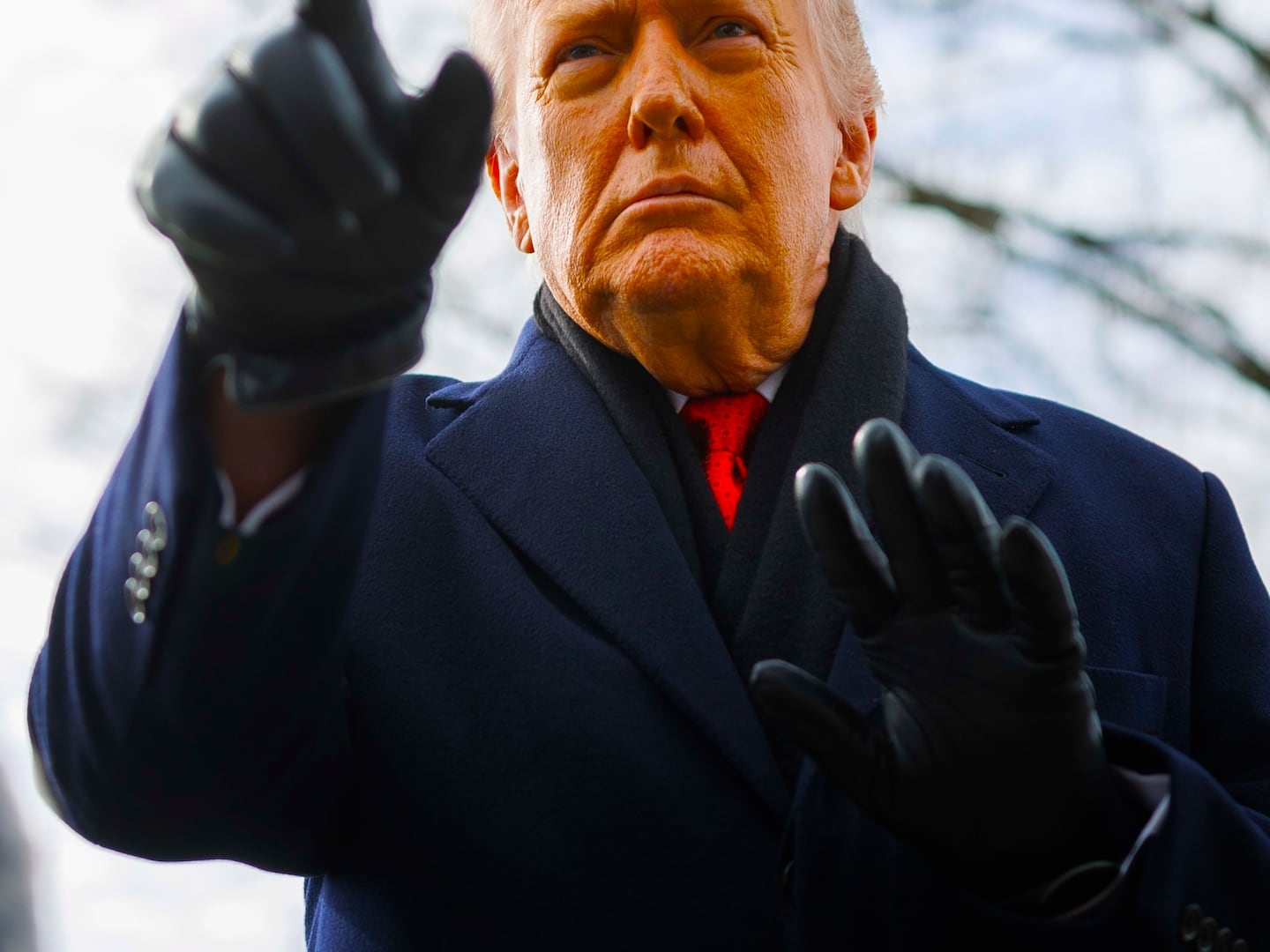The destruction wrought by superstorm Sandy has been horrific enough, but if there’s anything to be grateful for, it’s the storm’s timing. If Sandy had hit just one week later, we’d be facing a constitutional crisis.

As it is, there is plenty of speculation on the possible effects of the storm on the Nov. 6 election. There are multiple and conflicting answers to the concerns being raised—from political to statutory to constitutional—but they all obscure a larger and more troubling truth: there is absolutely no reason for us to be in this situation in the first place.
Of course, state and local governments have had to contend with elections disrupted by both manmade and natural disasters before. In 2001, New York City postponed municipal elections after the Sept. 11 terrorist attacks. In 2005, New Orleans and the state of Louisiana had to figure out how to let all of the voters displaced by Hurricane Katrina cast their ballots (PDF). Since those events, eminent election-law scholars have called on Congress to pass contingency plans for postponing federal elections, or at least modifying election rules, because of election-time disasters.
As the floodwaters and downed trees from Sandy continue to keep roads impassable and millions without power across the northeastern U.S., it’s worth stating the obvious: Congress has been gravely irresponsible in not drafting such contingency plans.
So what needs to happen?
First, when it comes to the presidential election, we need to clarify the rules dealing with postponing voting in parts of the country struck by disaster, extending polling hours, or allowing broader use of absentee ballots or other means of voting. Right now, what rules are in place are extremely murky.
(Prof. Steven Huefner of the Moritz College of Law at Ohio State University provides all the detail on the interaction of the U.S. Constitution, federal statutes, and state law, and it is not a pretty picture.)
Among the pressing unresolved questions is whether a state has the authority to postpone a presidential election in the face of a major disaster. The language of the Constitution may require a uniform day for presidential voting—indeed, it was on this basis that a Florida court in 2000 rejected the plea of voters in Palm Beach county who wanted a revote following the use of the infamously confusing “butterfly ballot.” But there’s little question that if a disaster forced a state to postpone the election, we’d be facing the potential for the Supreme Court to resolve the constitutional question and perhaps pick the president—again.
Even without an attempted postponement of Election Day, questions abound. Some jurisdictions are already scrambling to move polling places because of Sandy. But a bigger disaster could require even greater change. Extending the polling hours in parts of a state would require the mass use of provisional ballots, creating a potential logistical nightmare for election officials. Similar issues surround broad use of last-minute absentee ballots. Further, extending polling hours in parts of a state—or in one state and not others—would surely become a political issue, and each candidate’s team would likely support or oppose such an extension based on its likely electoral consequences. Extending polling hours within only part of a state also raises constitutional questions under the Equal Protection Clause, forcing courts back into the political thicket.
Perhaps the biggest question is what happens if a state in a disaster zone holds presidential voting in only part of a state on Election Day, but extends the voting past that day. There is a federal law on the books that might (or might not) give the state legislature an opportunity to simply choose its own slate of electors on another date, ignoring the partial voting results.
But that ambiguous law raises all sorts of thorny issues. What if Sandy had hit Ohio more directly, for example, leaving parts of Cleveland unable to vote even after Election Day? The Ohio state legislature could try to award the state’s 18 precious Electoral College votes to the candidate in the lead—which in this theoretical case would likely be the Republican, since Cleveland holds many of the state’s Democratic voters. Even more troubling, the state legislature might choose to award its state’s electoral votes to the party of the majority in the legislature, regardless of the preferences of voters.
All of this would be bad enough in ordinary times. But we do not live in ordinary times; we live in highly partisan and polarized times. Since 2000, the two major political parties have been enmeshed in the voting wars, fighting over rules such as voter-ID laws and early-voting changes. Election law has become part of a political strategy, and the rate of election-related litigation has more than doubled. Those on the losing end of a close election are more likely than they were before 2000 to demand a recount and go to postelection litigation.
Worst of all for disaster planning, legislatures are passing election reforms on party-line votes. With the exception of Rhode Island, the tough new voter-ID laws have been favored almost exclusively by Republicans and opposed almost exclusively by Democrats. Election Day Registration, which recently passed in California, is supported by Democrats and opposed by Republicans. In short, there has been no bipartisan space for election reform in the states, and there’s no reason to think Congress would do any better.
But bipartisanship is exactly what is needed now, just like it is needed to deal with contingency plans if the House of Representatives were hit by a terrorist attack (another issue Congress has irresponsibly ignored aside from holding hearings). Some things are just too big for partisan bickering.
At the end of my book The Voting Wars, I point out how Japan’s reaction to the devastating 2011 tsunami—raising its sea walls—was simply what humans often do: responding to the last disaster. But Congress hasn’t even done that much. When it comes to planning for catastrophes near election time, we’ve had at least two major disasters in the past decade, not to mention the Florida debacle—and through it all Congress has sat on its hands. Will it keep sitting until it’s too late?






